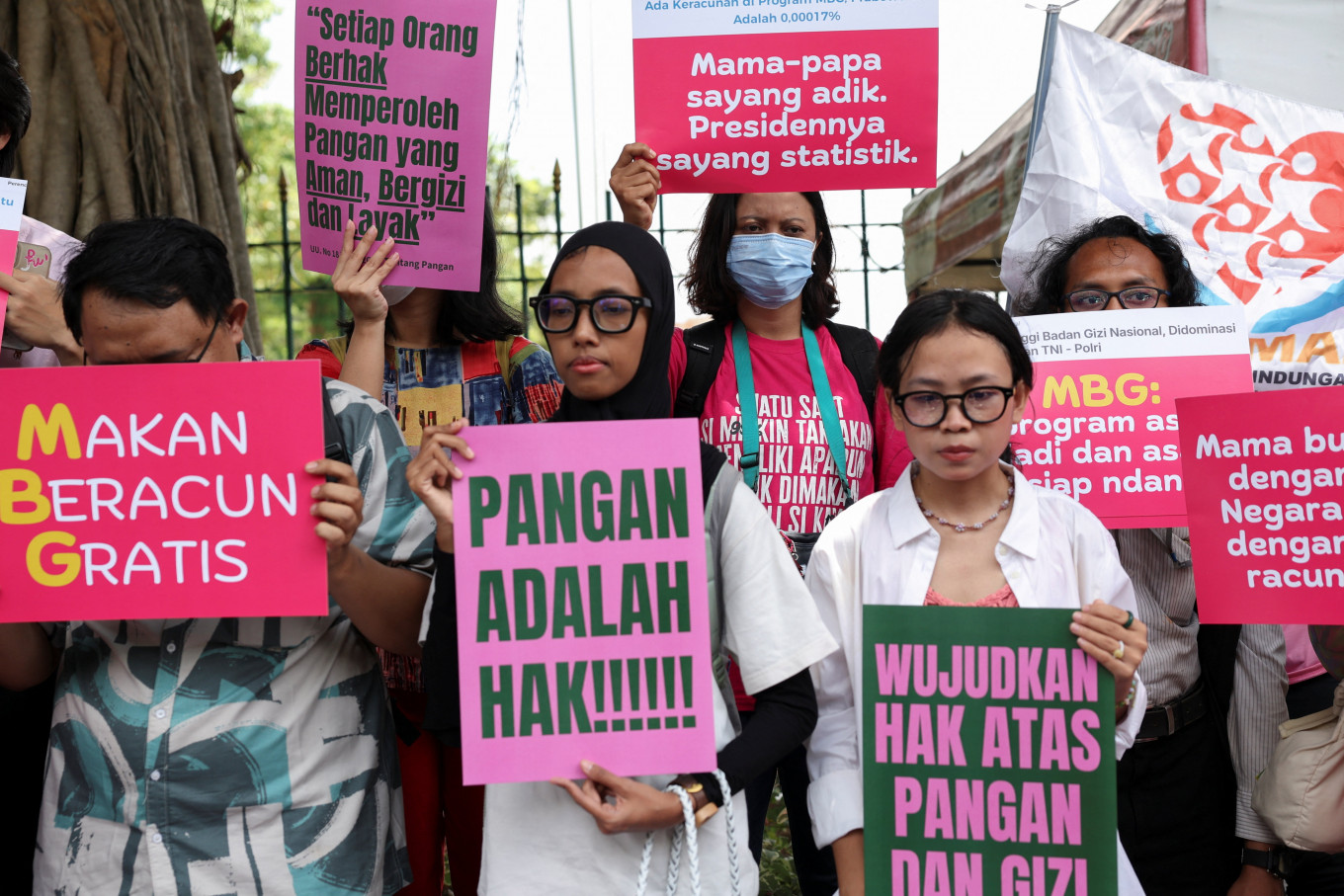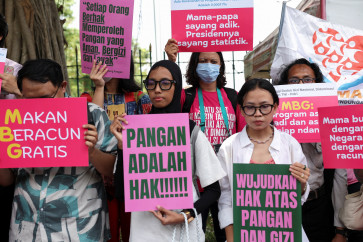Popular Reads
Top Results
Can't find what you're looking for?
View all search resultsPopular Reads
Top Results
Can't find what you're looking for?
View all search resultsSafer food for a better future: Lessons from the free meals program
There can be no better food without safer food, and no better future if the health of our people is compromised.
Change text size
Gift Premium Articles
to Anyone
T
oday the world marks World Food Day, a reminder that the future we build depends on the food we produce, not only in quantity but, first and foremost, in its safety and quality. This year’s theme, “Hand in Hand for Better Food and a Better Future,” carries a simple but profound message: No nation can move toward a better future without first ensuring better food.
In Indonesia, this message finds powerful resonance in the government’s free nutritious meal program, a nationwide effort to provide nutritious meals for schoolchildren, children under five and pregnant women. The better future Indonesia envisions is one where every child grows up healthy, active and ready to learn, able to reach their fullest potential through access to balanced, nourishing meals that support growth and development.
For Indonesia, the essence of this year’s theme is clear: Collaboration among government, producers and communities is essential to ensure that the food served through the free meals program truly nourishes our people and helps build a better future.
Yet we must remember that food can only be better if it is safe. Food safety lies at the very heart of that vision, for there can be no better food without safer food, and no better future if the health of our people is compromised.
Unsafe food can derail any nutrition initiative. In the case of the free meals program, it must be recognized that only when meals are safe can they meet dietary needs and achieve their intended goals. Beyond threatening health, lapses in food safety also erode public trust in well-intentioned programs like the free meals program.
Ensuring safety is therefore not merely about preventing illness; it is about building a food system the public can rely on, one that protects, nourishes and sustains life in every community. The success of the free meals program depends on disciplined hygiene, sanitation and modern, risk-based food safety management.
The global community, through the Food Agriculture Organization (FAO) and World Health Organization’s (WHO) Codex Alimentarius Commission, promotes a science-based, risk-management approach founded on one essential principle: Effective food safety begins with prevention.



















